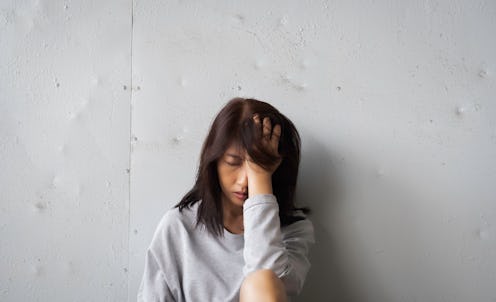
In a perfect world, medicine would first and foremost be about healing and health, and women's bodies wouldn't be used to make political statements. But as scientists discover new ways to protect us from disease, social stigma often prevents these breakthroughs from getting to those who need them most. The HPV vaccine is one notable example where sexism and sex-negativity can overshadow scientific fact, preventing young women (and men!) from getting the protection they need.
Anti-vaxxers might want to plug their ears now, but a 2013 study published in The Journal of Infectious Diseases credits the HPV vaccine for decreasing the rates of infection in teenage girls by half since its release in 2006. Early versions of the vaccine only protected against two strains of the virus, but the latest version is purported to protect recipients from nine strains. And if you need a reminder why HPV is so dangerous, it's been linked to up to 40 percent of vulvar, 60 percent of vaginal, and 80 percent of anal cancers and most cases of genital warts. There's little doubt that the HPV vaccine has saved lives and will continue to do so, but it hasn't always been an easy road spreading the preventative gospel. Here are four ways sexism and sex-negativity have impacted the vaccine both medically and socially:
1. Vaccine Researcher Initially Ignored Strains Most Common In Black Women
File this under sexism and racism, because a 2013 Duke University study found that Gardasil and Cervarix initially only targeted two types of HPV strains that were NOT the subtypes most common in black American women. Since then, a newer version of the vaccine has been introduced that partially covers the strains commonly known to be found in black women, but there is still a disparity between research, race, and protection.
2. The Vaccine Has Been Suggested To Cause Promiscuity In Girls
Certain folks on the religious and/or right side of the political spectrum have insinuated that the vaccine will cause girls to turn into out of control nymphos once they're protected from a few strains of HPV, or, at the very least, practice unprotected sex with abandon. Thankfully, a recent study came out that should put all those fears to rest — although dispelling the pervasive fear of female sexuality once and for all is a much taller order.
3. The Vaccine Has Been Primarily Marketed Towards Girls When Boys Should Have It, Too
HPV isn't a gender-specific disease. In fact, it can cause penile, anal, and mouth/throat cancers in men, and the CDC even recommends that boys get the vaccine. That being said, how many commercials have you seen marketed towards boys, and how much of the fearmongering about the vaccine stems from the stigma around young female sexuality?
4. A Doctor's Views About Sex Influences Their Decision To Offer The Vaccine To Younger Patients
A recent survey of 582 pediatricians published this week in the journal Pediatrics found that many doctors don't suggest the HPV vaccine to pre-teens and young teens because they either don't want to insult parents by broaching the subject of sexually transmitted infections or because they don't believe their patient is having sex — even though the vaccine works best if received before becoming sexually active. Most doctors instead target older teens and girls in particular.
Images: Watcharin Panyawutso / EyeEm/EyeEm/Getty Images; Giphy